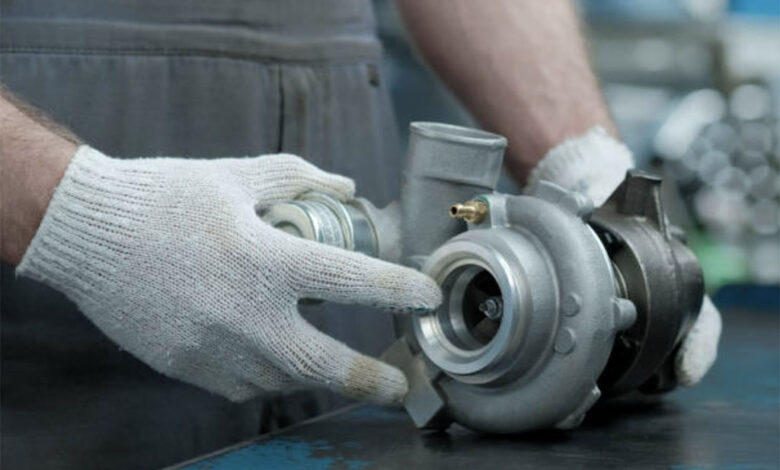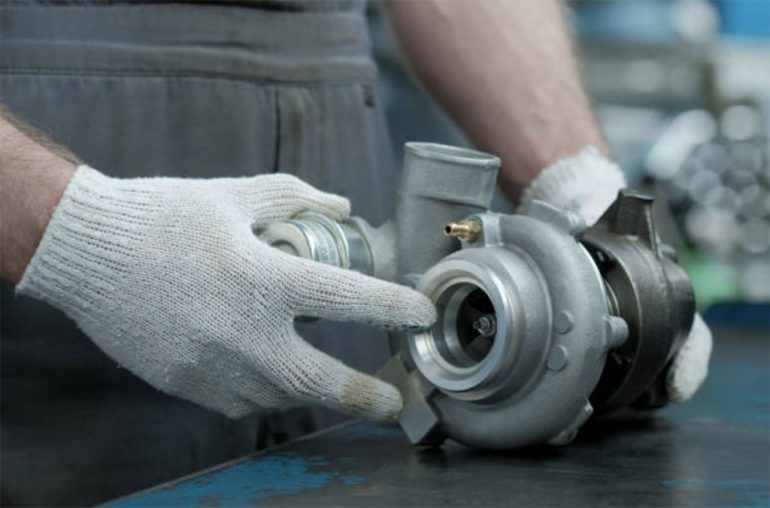Everything Explained: What Is Turbocharger Surging? : Automotive Addicts


The role of turbochargers is to enhance the engine’s power output, and they’re useful in both economy and heavy-duty cars. Sometimes, turbochargers can malfunction and cause issues like reduced power, increased emissions, and surging. But what is turbocharger surging?
Having a clear idea of turbocharger surging will enable you to quickly identify the problem and prevent it from escalating further. So, we will discuss turbocharger surging, turbo surge limit, and how to fix the issue once it arises.
What Is Turbocharger Surging?
Turbo surging happens when the airflow within the turbocharger gets disrupted, which leads to a loss of boost pressure. The chamber’s compressed air shortage can also damage the turbocharger and other engine components.
Surging is most noticeable during specific driving conditions, such as:
- Accelerating hard from low RPMs
- Abruptly lifting off the throttle
- Operating at the upper end of the turbo’s range
The turbulent airflow within the turbocharger and the intake system creates noise during surging. Air flows back and forth through the turbocharger’s compressor wheel, creating a distinct fluttering noise.
Contrary to popular belief, turbo flutter or the noise associated with compressor surging is not a sign of enhanced performance. Instead, it indicates an inefficient operation that threatens to damage the turbocharger and the vehicle’s engine.
Effects of Turbocharger Surging
When defining turbocharger surging, it’s important to mention that it can have negative consequences for the engine and its performance. Even though it’s often overlooked, it can have detrimental effects on an engine’s operation and affect its longevity.
Surging should never be disregarded, and it should be met with concern that demands attention as it can have the following adverse effects:
Reduced power and performance
The disrupted flow of compressed air in the engine will cause the power output to drop, especially at lower RPM levels. Driving under heavy loads will also become more difficult, while during regular driving, the acceleration will drop, as will the overall performance.
Increased fuel consumption
To compensate for the loss of airflow and in an attempt to maintain the desired level of performance, the engine will consume more fuel. This will lead to a worsened fuel economy, which may or may not be immediately noticeable by the owner. Either way, it will lead to higher operating costs.
Potential engine damage
Surging creates cyclic stress and turbulence, which can be harmful to the turbocharger. It can also damage other engine components like the bearings, seals, and the exhaust manifold. This can reduce the engine’s longevity and cause it to increase emissions because of its incomplete combustion.
Over time, unaddressed turbo surging can lead to costly repairs and a worsened driving experience.
Noise
The noise is key to understanding turbocharger surging. It’s worth noting that some level of noise is expected from almost every turbocharged vehicle. The noise associated with surging is easily recognizable and is commonly called “turbo flutter”. It is usually accompanied by a significant drop in engine power that’s mostly noticeable during acceleration.
The flutter noise can be particularly noisy in vehicles equipped with performance-focused turbochargers as the modifications may amplify the noise. In more extreme cases of turbocharger surging, the loud noise can completely ruin the driving experience.
How to Prevent Turbocharger Surging
It’s possible to prevent turbocharger surging simply by taking adequate care of your engine and ensuring it runs smoothly. Here are some actions you can take in order to prevent turbo surging:
Performing routine maintenance checks go a long way in preventing the emergence of surging. The entire turbocharger system should go through a thorough inspection, including checking for leaks, loose connections, and worn components.
-
Using high-quality filters
Having good filters will prevent debris and other contaminants from entering the turbocharger and causing damage. What’s also important is to replace the filters regularly to make sure there’s proper airflow.
It might sound counter-intuitive, but having a well-tuned engine will ensure that the air-fuel mixture is of the proper ratio. Moreover, it will optimize the boost levels so the engine doesn’t over-boost and cause problems.
-
Installing anti-surge compressor housing
Upgrading to an anti-surge compressor housing will improve the airflow and reduce the risk of surging by a significant measure. By design, anti-surge compressor housing includes wider and special inlet ports. These elements promote smoother airflow and minimize turbulence risk by improving the surge margin.
-
Avoid sudden throttle movements
As is the case with the maintenance of other systems, sudden throttle movements are not advisable because of the amount of stress it puts on the engine. Rapid acceleration and deceleration can disrupt the airflow and trigger turbocharger surging.
It’s best to allow the engine to warm up before subjecting it to high RPMs or heavy loads. Similarly, a proper cool down after more rigorous driving protects the turbocharger from thermal stress.
As a driver, it’s important to be mindful of the turbo surge limit when accelerating to keep your engine in good shape. When driving a manual transmission car, try to shift gears with proper timing to keep the engine in its comfortable range and prevent excessive strain on the turbocharger.
Summary
What is turbocharger surging? It happens when the engine’s turbocharger compresses more air than the engine needs, and it can result in reduced engine power. It can also cause damage to engine components, which is why it’s important to prevent the condition from happening or address it promptly.
Performing regular maintenance to the vehicle is a crucial preventative measure. Using high-quality filters and exercising proper driving habits can prolong the engine’s life and prevent the turbocharger from surging.




